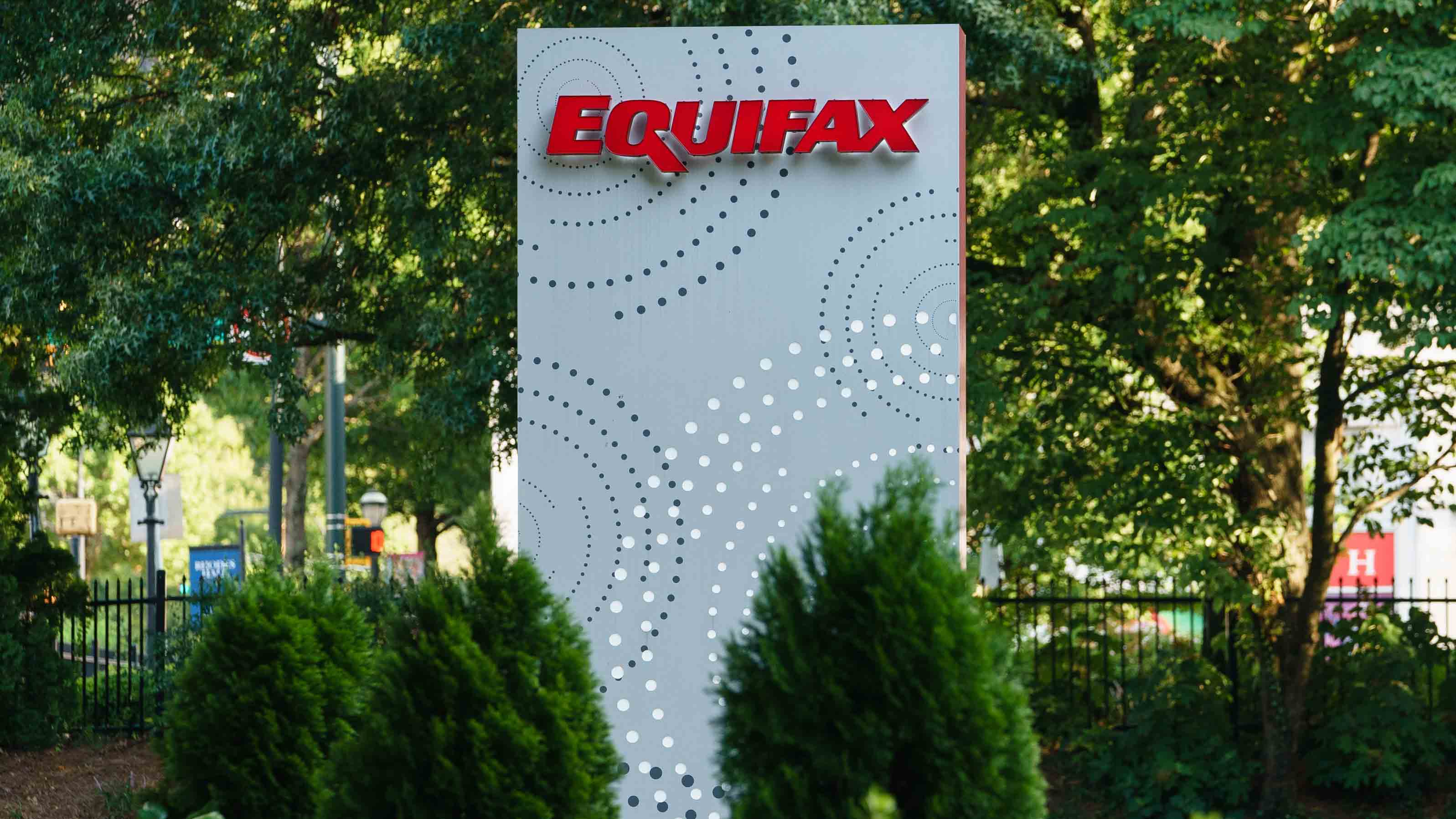TransUnion Fined $23M For Tenant Screening, Credit Freezes
Government charges TransUnion over illegal rental background checks and security freezes on consumer credit reports.

Esther D’Amico

Profit and prosper with the best of Kiplinger's advice on investing, taxes, retirement, personal finance and much more. Delivered daily. Enter your email in the box and click Sign Me Up.
You are now subscribed
Your newsletter sign-up was successful
Want to add more newsletters?

Delivered daily
Kiplinger Today
Profit and prosper with the best of Kiplinger's advice on investing, taxes, retirement, personal finance and much more delivered daily. Smart money moves start here.

Sent five days a week
Kiplinger A Step Ahead
Get practical help to make better financial decisions in your everyday life, from spending to savings on top deals.

Delivered daily
Kiplinger Closing Bell
Get today's biggest financial and investing headlines delivered to your inbox every day the U.S. stock market is open.

Sent twice a week
Kiplinger Adviser Intel
Financial pros across the country share best practices and fresh tactics to preserve and grow your wealth.

Delivered weekly
Kiplinger Tax Tips
Trim your federal and state tax bills with practical tax-planning and tax-cutting strategies.

Sent twice a week
Kiplinger Retirement Tips
Your twice-a-week guide to planning and enjoying a financially secure and richly rewarding retirement

Sent bimonthly.
Kiplinger Adviser Angle
Insights for advisers, wealth managers and other financial professionals.

Sent twice a week
Kiplinger Investing Weekly
Your twice-a-week roundup of promising stocks, funds, companies and industries you should consider, ones you should avoid, and why.

Sent weekly for six weeks
Kiplinger Invest for Retirement
Your step-by-step six-part series on how to invest for retirement, from devising a successful strategy to exactly which investments to choose.
The federal government has fined TransUnion a total of $23 million — including some $14 million to be paid to consumers — over illegal rental background checks and security locks and freezes on consumer credit reports.
TransUnion, a consumer credit reporting agency, said in an October 10 statement that it has agreed to two settlements with the government for the entire sum.
The move comes as the government, through agencies including the Consumer Financial Protection Bureau (CFPB) and Federal Trade Commission (FTC), has cracked down on specific practices at credit reporting agencies.
From just $107.88 $24.99 for Kiplinger Personal Finance
Become a smarter, better informed investor. Subscribe from just $107.88 $24.99, plus get up to 4 Special Issues

Sign up for Kiplinger’s Free Newsletters
Profit and prosper with the best of expert advice on investing, taxes, retirement, personal finance and more - straight to your e-mail.
Profit and prosper with the best of expert advice - straight to your e-mail.
In the rental background checks case, the CFPB and FTC jointly filed a complaint in federal court charging that TransUnion and its TransUnion Rental Screening Solutions (TURSS) subsidiary violated the Fair Credit Reporting Act. They charge that TransUnion and TURSS failed to take steps to ensure the accuracy of background checks used by landlords to decide who gets housing and to disclose to renters the names of the third parties that were given the inaccurate information.
“Consumers struggling to find housing shouldn’t be shut out by tenant screening reports that are ridden with errors and based on data from secret sources,” said Samuel Levine, FTC Bureau of Consumer Protection director, in a statement. “Protecting consumers looking for housing is critical to a fair economy, and we are proud to partner with the CFPB in obtaining this record-breaking order.”
TransUnion agreed to pay $15 million to settle the charges, with $11 million of this to be used to compensate consumers and $4 million to go into the CFPB’s civil penalty fund, CFPB said.
TransUnion said that it has worked with the agencies during the last year to enhance its rental screening reporting practices, including making certain changes to how eviction records are reported.
TransUnion says it's made changes
“We believe these changes will soon become industry standard,” the company said. “This settlement reflects the agencies’ evolving regulatory objectives and our openness to join them in reasonable initiatives that are beneficial to consumers and support safe, affordable housing.”
Separately, the CFPB fined TransUnion $8 million for “lying to consumers” since at least 2003 about timely placing or removing security freezes and locks on the credit reports of tens of thousands of consumers. TransUnion told consumers that their requests were completed when they were actually placed into a “years-long backlog,” CFPB said.
The agency also charged TransUnion for failure to keep active-duty members of the military from prescreened solicitation lists.
For those violations, TransUnion agreed to pay an $8 million fine, about $3 million of which would go to consumers and $5 million paid into the CFPB victim’s relief fund. TransUnion would also need to agree to “clean up its business practices,” including addressing the problems with freeze and lock requests, the CFPB said.
In response, TransUnion said it is committed to helping consumers manage their credit information and that it has made changes to ensure timely placement and removal of security freezes and locks.
“We corrected associated system issues in 2020 and have processes in place to monitor and address any issues going forward,” TransUnion said. It added that it has not admitted to any wrongdoing with either settlement.
“TransUnion agreed to these settlements to resolve these matters and proceed with our work providing important services and helping consumers reach their goals,“ TransUnion said.
How to check background reports for errors
The CFPB offers a number of consumer services including a checklist of how to check your rental background reports for errors.
You can also read more about consumer complaints — which total nearly a half million — against the credit reporting agencies in the CFPB’s annual report.
“TransUnion, Equifax, and Experian routinely top the list of complaints submitted by consumers,” CFPB Director Rohit Chopra said in a January 3 statement on the report. “We will be exploring new rules to ensure that they are following the law, rather than cutting corners to fuel their profit model.”
Related Content
Profit and prosper with the best of Kiplinger's advice on investing, taxes, retirement, personal finance and much more. Delivered daily. Enter your email in the box and click Sign Me Up.

Joey Solitro is a freelance financial journalist at Kiplinger with more than a decade of experience. A longtime equity analyst, Joey has covered a range of industries for media outlets including The Motley Fool, Seeking Alpha, Market Realist, and TipRanks. Joey holds a bachelor's degree in business administration.
- Esther D’AmicoSenior News Editor
-
 The New Reality for Entertainment
The New Reality for EntertainmentThe Kiplinger Letter The entertainment industry is shifting as movie and TV companies face fierce competition, fight for attention and cope with artificial intelligence.
-
 Stocks Sink With Alphabet, Bitcoin: Stock Market Today
Stocks Sink With Alphabet, Bitcoin: Stock Market TodayA dismal round of jobs data did little to lift sentiment on Thursday.
-
 Betting on Super Bowl 2026? New IRS Tax Changes Could Cost You
Betting on Super Bowl 2026? New IRS Tax Changes Could Cost YouTaxable Income When Super Bowl LX hype fades, some fans may be surprised to learn that sports betting tax rules have shifted.
-
 Credit Cards vs Charge Cards: What Are the Differences?
Credit Cards vs Charge Cards: What Are the Differences?All you need to know about credit cards vs charge cards — differences, pros and cons.
-
 How Many Credit Cards Should I Have?
How Many Credit Cards Should I Have?How many credit cards should you have? The answer isn’t as straightforward as you might think — it all depends on your financial situation.
-
 Credit card delinquency expected to increase in 2023
Credit card delinquency expected to increase in 2023Credit card and personal loan delinquency rates are expected to increase this year.
-
 What Is a Good Credit Score?
What Is a Good Credit Score?Having a good credit score can save you hundreds, even thousands of dollars on credit cards, mortgages and other loans.
-
 Best Credit Cards for Bad Credit 2023
Best Credit Cards for Bad Credit 2023If used wisely, these credit cards can help you dig out of bad credit; you may even earn 2% cash back.
-
 How to Freeze Your Credit in Three Steps
How to Freeze Your Credit in Three Stepscredit & debt Freezing your accounts at the three major credit bureaus is the best way to prevent thieves from opening new credit accounts in your name.
-
 Did Equifax Botch Your Credit Score?
Did Equifax Botch Your Credit Score?credit score Equifax is in the news–yet again–this time for sending lenders the wrong credit score. Here’s how to find out if you were affected and what to do next.
-
 Two Updates to Credit Reports
Two Updates to Credit Reportscredit & debt The major credit bureaus are changing how they report information about medical debt and buy now, pay later.